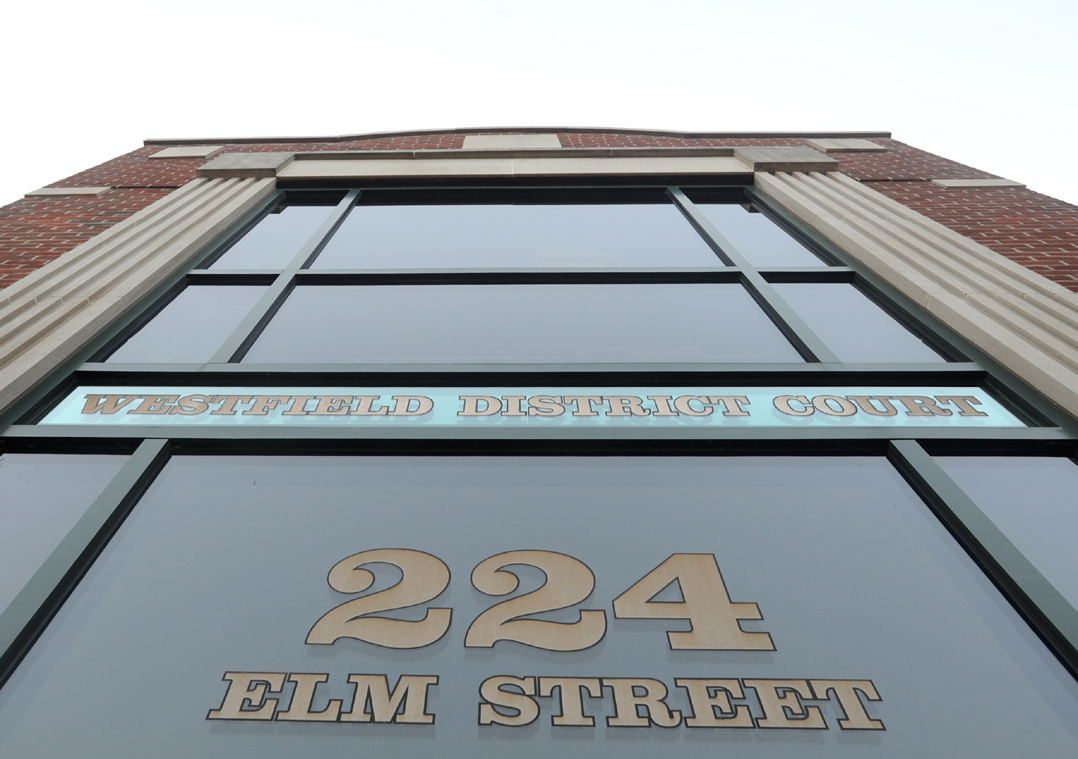WESTFIELD – A Springfield man may regret hiring the best possible candidate to fill his shoes when he left his job as office manager for a Southampton Road business to become a professional golfer.
His replacement uncovered embezzlement at Northeast Overhead Door amounting to more than $38,000 and Sean P. Clancey, 50, of 31 Whitaker St., Springfield, has been arraigned for larceny of property valued more than $250 by a single scheme.
Clancy had known the owner of the company before he was been hired but took the job only on a temporary basis because he had ambitions to become a pro golfer.
He worked for the company for 15 months before he left to pursue a career as a golfer.
Westfield Det. Todd Edwards reports that Clancey participated in the hiring process for his replacement and the woman he recommended, who had considerable bookkeeping experience, was hired.
The situation came to the attention of Edwards, who is assigned to the financial crimes unit of the Detective Bureau, when the new bookkeeper discovered anomalies in the company’s records.
The woman said that her predecessor had told her that she did not have to deal with past issues but she found the company’s books to be disorganized and confusing and, when she attempted to bring them into order, found evidence that funds were missing.
The woman told Edwards that during her investigation into the software used at the company she found a hidden feature.
She said that she found a way to access an unalterable record of financial transactions, which Clancey was apparently not aware of, which is included in the software to assist in case of an audit.
By comparing the unalterable record with the accounts her predecessor had left for her the woman found that Clancey had apparently been bilking the company for money in several ways.
The bookkeeper found that records in the hidden file revealed that records of checks totaling more than $16,000 made payable to Clancey, his landlord and to cash had been changed so that the checks appeared to have been written to plausible payees.
The bookkeeper checked with the company owner, Edwards said, and was told that there was no reason checks should have been written to Clancey, his landlord or cash.
The bookkeeper also found that Clancey had been paid for an unusually large number of overtime hours.
She was told that the man had sometimes worked outside the office but she found that he had been paid for many more overtime hours than other company employees and found that, during one pay period, he had been paid for 50 overtime hours but for no straight time hours.
In addition, the bookkeeper found that Clancey had received a $5 per hour raise which he apparently awarded himself as the company owner said that he had not authorized a raise for Clancey.
The bookkeeper found that Clancey had garnered more than $16,000 from his unauthorized raise, overtime pay and unearned vacation pay.
By comparing the records left by Clancey and the unaltered record she discovered, the bookkeeper also discovered discrepancies in deposits that Clancey had made for the company.
She found that in several instances in which both cash and checks were received by the company, only the checks were deposited.
She reported that cash totaling $1,410 was not accounted for in the deposits.
In addition, Edwards said, the bookkeeper found that Clancey had apparently misused a company credit card.
The woman reported that most of the company credit cards were issued so that employees could buy fuel for company vehicles but the office manager, who did not have a company vehicle assigned to him, had been give a credit card to facilitate purchases of office supplies.
Nonetheless, the new bookkeeper found fuel charges on Clancey’s credit card account along with charges for hardware and flowers for his girlfriend’s funeral which the company owner said he had not authorized.
Edwards reports that Clancey, as office manager for the business, was “the only person with complete access to the accounting system.”
He said that not even the owner had full access to his company’s records.
“The owner stated that he never had complete access to the books and account because Mr. Clancey always had an excuse as why not to provide it to him,” he said.
Clancey was arraigned before Judge Rita S. Koenigs in Westfield District Court on June 25 and was released on his personal recognizance pending a Sept. 25 hearing.
He was charged under Chapter 266, Section 30 of the Massachusetts General Laws which provides for punishment, upon conviction, “by imprisonment in the state prison for not more than five years, or by a fine of not more than twenty-five thousand dollars and imprisonment in jail for not more than two years.”


